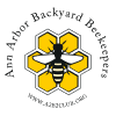2024 Bee School Classes Registration is Now Open to Members
The classes started in February. Registration remains open.
To get the heads-up on event updates like this, plus enjoy all of our other offerings, please either join our club or subscribe to our newsletter.
To get the heads-up on event updates like this, plus enjoy all of our other offerings, please either join our club or subscribe to our newsletter.
|
We offer two fee-based courses for beginning and intermediate beekeepers. Classes meet February through October. Further details will be provided to registered students prior to the first bee school session (currently scheduled for Sunday, February 5).
Face-to-face events (e.g., lectures, equipment build day, hands-on bee yard experiences) are scheduled and will be subject to the current CDC guidelines. Indoor events will be held in the large indoor meeting spaces provided by Matthaei Botanical Gardens. When weather permits, lectures may be held outdoors in the bee yard at the instructor’s discretion. Participants are expected to bring their own veils/protective clothing, and dress appropriately for working outdoors with bees. Some sort of veil/face protection is required for working in the apiary. We will use the club's teaching hives at Matthaei Botanical Gardens for hands-on skill training. |
All photos courtesy of instructor Dave Pearce
|
|
Instructor: Dave Pearce ([email protected], 248-302-7797)
Course enrollment fee: $175 per person. Includes electronic resources and/or printed handouts. Course and Apiary Location: Matthaei Botanical Gardens 1800 N. Dixboro Rd., Ann Arbor, MI 48105 |
Beginning Bee School |
Intermediate Bee School |
|
This course is for the beginner to beekeeping. Our experts will guide you through your first year of beekeeping, covering equipment, bee biology, and basic management. We will discuss the many situations that a beekeeper will face over the year, and will provide hands-on experience in basic hive inspection and skills – designed so that each participant can learn a technique in class and return to apply it in their own hives. This course will focus on understanding the needs of bees and raising healthy colonies.
Each class will begin indoors with lecture/discussion time, and will move outdoors to the teaching apiary (except February, which will be entirely indoors). Participants are expected to bring their own veils/protective clothing, and dress appropriately for working outdoors with bees. Some sort of veil/face protection is required for working in the apiary. We will use the club's teaching hives at the Botanical Gardens for hands-on skill training. Participants generally choose to keep their own bees during this season, though it is not required. No equipment is required at the beginning of the course, as we will cover where and how to purchase everything. It is recommended that participants attend each class, as each session will cover new information. Click Here to See the Beginner Class Schedule Vertical Divider
|
This course is designed for individuals with some beekeeping experience. Students should have completed a season-long beekeeping course or have kept bees successfully through at least one winter and have a basic understanding of bee biology and management techniques. We will address management strategies for beekeepers who want to expand their apiaries and have more overwintering success or for those who feel like they are stuck as a beginner beekeeper year after year. We'll take a more in-depth look at swarm prevention, splits, overwintering hives, pests & disease treatment and prevention, and tricks of the trade. The classes are scheduled to be slightly ahead of when you would perform the tasks on your own hive, so you are prepared to manage your own hive through the season. The goal of this course is for participants to be able to identify their colony’s needs and to have the skills to keep a more sustainable apiary.
Each class will begin with indoor lecture/discussion, and will move to the teaching apiary (except February, which will be entirely indoors). Participants are expected to bring their own veils/protective clothing, and dress appropriately for working outdoors with bees. Some sort of veil/face protection is required for working in the apiary. We will use the club's teaching hives at the Botanical Gardens for hands-on skills training. It is recommended that participants attend each class, as each session will cover new information. Click Here to See the Intermediate Class Schedule |
Being a beekeeper is not so much an "event" but RATHER a long-term learning process. And I feel like there is SO much to learn, always. Sometimes it is overwhelming. So Dave Pearce and his beekeeping class is the perfect antidote for fundamental building block learning and then filling in the knowledge gaps year after year. His sense of humor and teaching style make the classes fun and somehow every time I take a series of classes, I come out of it more confident in my beekeeping skills. Plus it's a great way to hear from others and their experiences in raising honeybees. If you want to know bees, get to know Dave. He is generous in imparting his knowledge during class and available for a quick consult during the season. I highly recommend him! |
I am so incredibly grateful I signed up for the class, even with the Covid changes. In fact I found the more-frequent Q&A sessions really helpful to be able to hear more of my classmate's questions, in real time. Having a guide to go through the first year with my bees was absolutely essential. I was totally overwhelmed by all the info out there -- it felt like drinking out of a fire hose -- and being able to ask questions and have Dave and Andrea filter down the most important 'need-to-knows', at the right time in the season, was invaluable. Though at times I was still overwhelmed, I feel much more confident going into the next season. |


